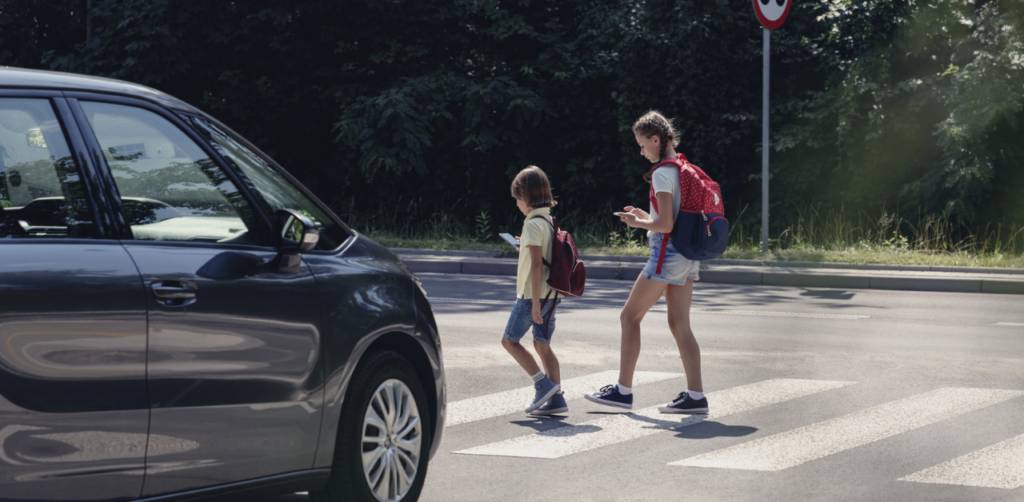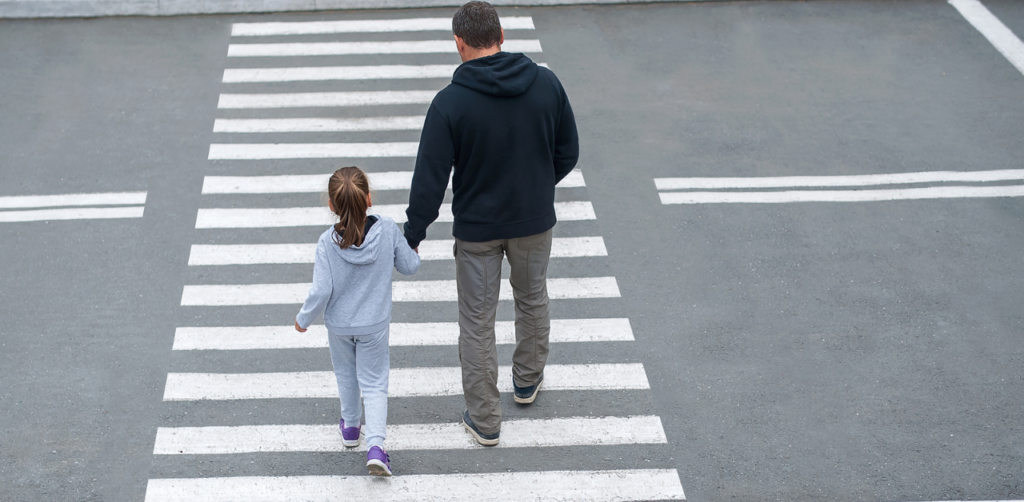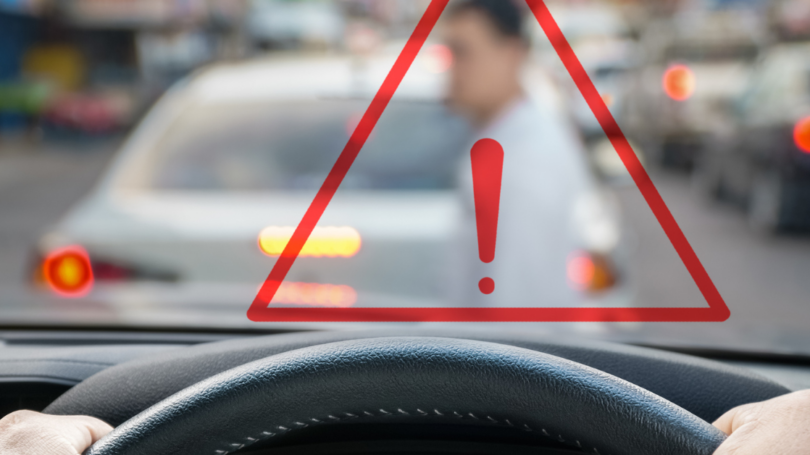Failure to yield to pedestrians in marked or unmarked crosswalks is a traffic violation. It endangers lives and carries severe penalties, including demerit points on your driving record, increased insurance premiums, and potential license suspension. For commercial drivers, such violations can jeopardize their livelihoods by affecting their commercial driver’s license.
Nevada state law mandates that drivers yield to pedestrians at designated crosswalks and intersections. Ignoring these rules can result in traffic tickets, criminal charges, and civil penalties. In some cases, failing to yield can sometimes result in misdemeanor reckless driving charges, especially if it leads to a traffic accident or pedestrian injury.
Temple Injury Law is dedicated to helping victims of pedestrian accidents. We gather evidence, review police reports, and consult with experts to build a strong case. If you or a loved one has been injured due to a driver’s failure to yield, contact us to schedule a consultation. Our team is here to guide you through the entire process and fight for your rights.
What is Failure to Yield to Pedestrians?
Failure to yield to pedestrians occurs when a driver does not give the right-of-way to pedestrians crossing the street in designated areas. This can happen in any marked or unmarked crosswalk, pedestrian safety zones, or school zones. In Nevada, drivers must yield to pedestrians at crosswalks, even when official traffic control devices are not operational. This requirement underscores the need for vigilance and caution in areas where pedestrians may be present.
Drivers must slow down or stop to yield to pedestrians crossing the highway within a marked crosswalk. Moreover, when a motor vehicle is stopped at a crosswalk, other drivers must only overtake and pass the stopped vehicle once it is safe to do so. This rule is vital for pedestrian safety and the prevention of traffic accidents. Ignoring these rules can lead to traffic violations, hefty fines, and even more severe penalties if an accident occurs.
Legal Requirements for Yielding to Pedestrians
Nevada Revised Statutes (NRS) 484B.280 and NRS 484B.283 outline the duties of drivers and pedestrians to ensure safety and proper right-of-way.
Under NRS 484B.280, drivers must avoid collisions with pedestrians by being cautious, using their horns if necessary, and being particularly careful when pedestrians are near roads, bus stops, or school zones. If a driver causes a collision with a pedestrian while violating these duties, they face additional penalties.
In addition, NRS 484B.283 states that drivers must yield to pedestrians in crosswalks if traffic signals, such as a stop sign, are not present or operational. Pedestrians must not suddenly step into traffic, and drivers cannot pass vehicles stopped at crosswalks. When pedestrian signals like “Walk” or “Don’t Walk” are present, pedestrians must follow these signals, and drivers must yield accordingly. Violations that lead to collisions with pedestrians result in further penalties.
Penalties for Failing to Yield to Pedestrians
Penalties for failing to yield to pedestrians can vary widely depending on the circumstances and the severity of the incident. Generally, failing to produce is considered a civil infraction and may result in fines and demerit points on the driver’s license.
However, in more severe cases, such as when an accident occurs, the penalties can escalate to criminal charges, including reckless driving or even vehicular manslaughter. These penalties aim to enforce traffic laws while encouraging pedestrian safety.
Civil Infractions
Civil infractions for failing to yield typically involve monetary fines and, in some cases, community service. The specific amount of the fine can vary depending on local laws and the circumstances of the violation. For example, in Las Vegas, fines for failing to yield to pedestrians at a crosswalk can be up to $1,000, with potential additional penalties if the incident occurs in a pedestrian safety zone. These fines are intended to serve as a deterrent to prevent future violations.
In addition to fines for traffic violations, drivers may be required to complete community service or attend traffic school to mitigate the penalties. This approach punishes the driver and aims to educate them on better driving practices. In some cases, it is possible to have a moving violation reduced to a non-moving violation with the help of a qualified attorney, provided no serious bodily harm was involved.
Criminal Charges

Criminal charges for failing to yield can arise when the incident leads to a collision or serious bodily harm. In Nevada, for example, failing to yield to pedestrians can result in reckless driving charges if a minor collision occurs. Reckless driving is considered a serious offense, leading to significant penalties, including jail time and license suspension.
Defendants facing criminal charges can have a bench trial for misdemeanor reckless driving charges or a jury trial for felony reckless driving charges under criminal law. Settling the case without going to trial is also an option, often through negotiations with prosecutors. The severity of the consequences highlights the need to adhere to traffic laws and exercise caution when pedestrians are present.
Impact on Driving Record
Failing to yield can have long-lasting effects on a driver’s record. In Nevada, drivers who fail to yield to pedestrians will receive four demerit points on their license, which can be mitigated by attending traffic school. Accumulating too many demerit points can lead to license suspension. In Nevada, accumulating 12 or more points within a year results in a six-month suspension.
Beyond the immediate penalties, a failure to yield conviction can also impact insurance rates. Insurance companies view such violations as indicative of risky driving behavior, leading to increased premiums. This financial impact adds another layer to the consequences of failing to yield, underlining the need for drivers to comprehend and abide by traffic laws.
Defending Against a Failure to Yield Ticket
Defending against a failure to yield ticket involves several strategies, including:
- Gathering evidence to support your case
- Challenging any procedural errors made during the traffic stop or ticketing process
- Negotiating with prosecutors to potentially reduce charges or have the ticket dismissed
By employing these strategies, you can increase your chances of achieving a more favorable outcome in your case.
A solid defense can significantly alter the case’s outcome, emphasizing the need to understand the available defense options.
Common Defenses
Common defenses against failure-to-yield tickets include challenging the prosecution’s evidence and proving the driver exercised due care. The prosecution has the burden of proof and must demonstrate beyond a reasonable doubt that the driver failed to yield. This high standard of evidence can be challenging to meet, especially if the scene is not properly indicated or visible.
Errors made by the police officer in identifying the vehicle or procedural mistakes in the ticketing process can also be challenged in court. Additionally, dashcam footage and other evidence can be used to support the driver’s case, providing a robust defense against the charges.
Insurance Consequences
Failing to yield to pedestrians is considered a moving violation, which can result in increased auto insurance rates. Insurance companies view such violations as serious offenses, indicating a disregard for pedestrian safety and elevating the driver’s risk profile. As a result, insurance premiums can increase by 20-30% following a failure to yield a conviction.
Reducing the charges to a non-moving violation usually has no impact on insurance rates. This often means that the cost of insurance will stay the same. Completing traffic school can also help prevent an increase in auto insurance rates by masking the point from the driving record. Understanding the insurance implications of traffic violations emphasizes the need to adhere to traffic laws.
Special Considerations for Commercial Drivers
Commercial drivers face additional consequences for failing to yield to pedestrians, which can significantly impact their careers. CDL holders in Nevada must report traffic charges related to yielding to pedestrians to their employer within thirty days of the incident. This transparency requirement ensures that employers are aware of their drivers’ conduct on the road and can take appropriate action if necessary.
Both regular driver’s licenses and CDLs require a valid driver’s license to operate legally on the road. If no accident occurs, they will receive four demerit points, or eight demerit points if there is an accident. These penalties can lead to the suspension of the CDL, effectively ending a professional driving career.
Additionally, failing to yield a conviction could jeopardize employment, as many employers check driving records. The severe repercussions highlight the necessity of obedience to traffic laws and caution, particularly for commercial drivers who bear significant road responsibilities.
Comparative Fault in Pedestrian Accidents

Comparative fault in pedestrian accidents considers the extent of each party’s responsibility in the incident, potentially affecting the outcome of legal proceedings and compensation. Even if a pedestrian is crossing illegally, drivers are still required to use caution to avoid an accident. Pedestrians should not enter the intersection suddenly, when oncoming traffic is close enough to cause an accident, emphasizing the shared responsibility of both drivers and pedestrians.
Under Nevada’s comparative fault law, the person less to blame for an accident can still recover a portion of their losses. The assignment of fault in pedestrian accidents is decided by a jury, which determines the extent of each party’s fault and the corresponding compensation.
Violations of traffic laws by a pedestrian provide substantial evidence of fault but are not definitive proof of negligence. An attorney can investigate if the pedestrian shared any fault, potentially strengthening the defense.
Practical Tips for Avoiding Failure to Yield Violations
Avoiding failure to yield violations requires drivers to exercise reasonable care and vigilance. One of the most effective strategies is to drive defensively, always being aware of the cars and pedestrians around you.
Moreover, slowing down when approaching crosswalks and intersections allows more time to react to pedestrians who may be crossing the road. Eliminating distractions, such as mobile phones, ensures that drivers can focus entirely on the road and the safety of others.
Special care should be taken in the following areas:
- School zone and pedestrian safety zones
- Designated crosswalk
- Bike lanes
- Intersections
Following these practical tips can assist drivers in avoiding traffic citations and enhancing pedestrian safety.
Contact an Experienced Pedestrian Attorney in Las Vegas
Failing to yield to pedestrians can lead to serious accidents and severe consequences. Pedestrians are among the most vulnerable road users, and drivers must exercise caution and prioritize their safety.
Temple Injury Law in Las Vegas is here to help if you’ve been injured in a pedestrian accident. Our experienced pedestrian accident attorneys are ready to support you and ensure you get the compensation you deserve. Schedule a consultation today to discuss your case and take the first step towards justice.

Jeff Temple focuses his practice in the area of personal injury. As a skilled personal injury attorney, he handles a broad range of cases including motor vehicle accidents, premises liability, and wrongful death. He is a graduate of the Radford University, he later attended the University of Miami School of Law and studied abroad at University College London. Upon graduating, Jeff relocated to Las Vegas and founded Temple Injury Law in 2022.

